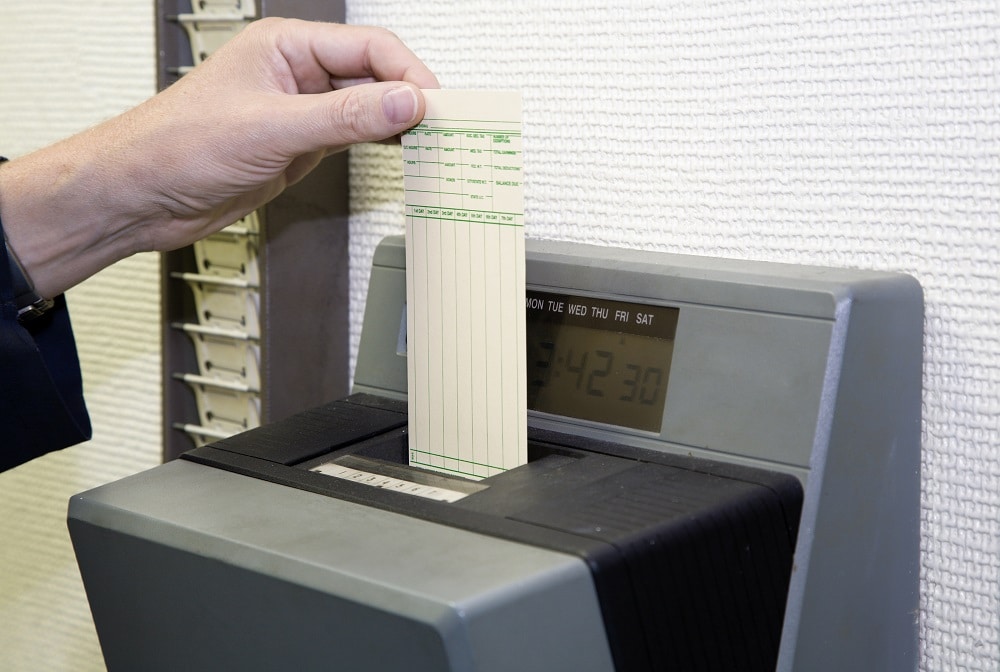California employment law covers a broad range of topics, but the underlying theme is that each piece of legislation is in place to protect workers in Glendale, Los Angeles and everywhere else in the state. The laws cover things like minimum wage, meal and rest breaks, and overtime pay, as well as salary classifications (contractor vs. employee) and several other aspects of working for pay in California.
California Employment Law: The Basics
Each of the laws that California employers must follow comes from the federal government, the state government, or local governments. When there’s a dispute about which law employers are supposed to follow, it usually comes down to the law that provides the broadest protections or benefits to employees. For example, the federal minimum wage law says that minimum wage is $7.25 per hour – but California’s minimum wage law says that it’s $10.50 per hour, so that’s the law courts will enforce (California’s law provides the broadest benefits to employees, in this case).
Minimum Wage
Employers must pay employees minimum wage or more, and they must pay the minimum wage for the state of California (not federal minimum wage).
This table shows California’s current minimum wage and its scheduled increases, which will go into effect on January 1 each year until 2023.
| Year | 25 Employees or Fewer | 26 or More Employees |
| 2017 | $10/hour | $10.50/hour |
| 2018 | $10.50/hour | $11/hour |
| 2019 | $11/hour | $12/hour |
| 2020 | $12/hour | $13/hour |
| 2021 | $13/hour | $14/hour |
| 2022 | $14/hour | $15/hour |
| 2023 | $15/hour |
Meal and Rest Breaks
Employers in California have to provide workers with meal breaks and rest breaks. There are different requirements for each, but this table shows what employers must provide in each situation.
| Shift Length | Breaks Mandated by Law |
| 3.5 – 6 hours | 10 minute rest break |
| 6 – 10 hours | Two 10-minute rest breaks |
| 5 hours + | One 30-minute meal break |
| 10 hours + | Two 30-minute meal breaks |
Overtime Pay
Many employees who work over a certain number of hours are entitled to overtime pay. The amount each person is entitled to is referred to as either time and a half or double time.
Time and a half is the employee’s regularly hourly rate of pay plus half the regular hourly rate (so if the employee’s hourly rate is $20 per hour, and he or she is entitled to time and a half, the employee will receive $30 per hour).
Double time is twice the employee’s hourly rate (so if the employee’s hourly rate is $20 per hour, and he or she is entitled to double time, the employee will receive $40 per hour).
This table shows when time and a half and overtime pay kick in for California employees.
| Hours Worked | Rate |
| 8 or more per day | Time and a half |
| 40 or more per workweek | Time and a half |
| 7th consecutive day in one workweek | Time and a half |
| 12 or more per day | Double time |
| Over 8 hours on the 7th consecutive day in a workweek | Double time |
Contractors vs. Employees
California employment law says that the way employees are paid and receive benefits in the state of California depends on their salary classification, whether they’re an employee or a contractor. A contractor is a person or company that undertakes a contract to provide materials or labor to perform a service or do a job, and an employee is a person employed for wages or a salary… but there are more differences between the two than that. (Learn more about the differences between contractors and employees now.)
California Employment Law FAQ
If you still have questions about California employment law, check out our frequently asked questions. If you don’t see an answer to your question here, please call us at 818-617-9713 – we’ll be happy to answer it for you during your free consultation.

What Are My Rights as an Employee in California?
California employees have many rights – our state has some of the most worker-friendly laws in the country. You have the right to:
- Be paid for medical leave (to an extent)
- Earn overtime pay in many cases
- Work in a place free from employment discrimination
- Be paid in a timely manner
- Not be fired for an illegal reason
Learn more about what rights employees have in California here.
Can You Be Fired Without Reason in California?
California is an at-will employment state, which means you can quit your job – or your employer can fire you – for any reason. However, if your employer fires you, it cannot do so because of an illegal reason (such as because of your sex, gender, religious beliefs or sexual orientation). If your employer does fire you for any of those reasons, you may be entitled to sue.

What Constitutes Wrongful Termination in California?
Wrongful termination occurs when an employer illegally or improperly fires an employee. Most commonly, wrongful termination involves discrimination (such as an employer firing you for your religious beliefs, sexual orientation or race), for requesting time off that you’re legally entitled to take, whistleblowing (such as reporting a violation of the law), or for a reason that violates public policy.
Is California a Right to Work State?
California is not a right-to-work state. That means it’s legal for employers in our state to make you join a union as a condition of employment.
Related: What rights do employees have in California?
Can My Employer Change My Schedule Last-Minute in California?
According to the federal Fair Labor Standards Act, employers are legally allowed to change an employee’s schedule without giving prior notice – and even without your consent – unless you have a prior agreement saying that your employer will not do so. If you do have an employment contract or a collective bargaining agreement, your employer can only do what’s within its limits according to either of those documents. There are exceptions, too – in some locations, employers must provide you with up to two weeks’ notice prior to changing your schedule.

How Long Does an Employer Have to Correct a Paycheck Error in California?
If there’s an error on your paycheck, your employer must correct it as quickly as possible. The longer your employer waits, the more it may have to pay in penalties.
If it’s about your final paycheck, you need to know that if you quit, you’re entitled to your final paycheck within 72 hours of giving notice that you’re leaving. If you’re fired, your employer must pay you on the same day that you’re fired.
Your final paycheck must include all wages and business expenses that your employer owes you. It must also include the cash value of any benefits your employer owes to you (like vacation days you never used).
If you don’t receive your final paycheck on your last day, you’re entitled to recover penalties from your employer for every day you had to wait. You may want to talk to a Los Angeles labor lawyer about your situation.
Related: Laws against not paying employees
Can My Employer Change My Schedule Without Notice in California?
Your employer can change your work schedule without notice in California – unless you have a prior agreement that says it won’t do so. However, in some locations, employers must provide you with up to two weeks’ notice prior to changing your schedule. If you’re not sure about your own situation, it’s a good idea to talk to a Los Angeles employment attorney.
What Qualifies as Wrongful Termination?
Any time an employer fires an employee for an illegal reason – such as because of the employee’s race, religious beliefs, age or sexual orientation – it qualifies as wrongful termination. Likewise, if an employer breaks its contract with you to fire you, you could have a wrongful termination suit on your hands.
Check out these categories of people that employees can’t fire based on membership:
- Age (40 or older)
- Race or color
- Sex (including pregnancy, breastfeeding and childbirth)
- Physical or mental disability
- Religion or creed
- National origin or ancestry
- Political affiliation
- Medical condition
- Gender identity or gender expression
- Genetic information
- Marital status
- Military or veteran status
Employers can’t fire someone in retaliation, either. That means your employer could be guilty of wrongful termination if you’re fired because you:
- Reported unlawful activities
- Made a worker’s compensation claim
- Complained about workplace health or safety
- Complained about unpaid wages or overtime pay
- Reported violations of the Labor Code
- Reported patient safety concerns (if you’re in the healthcare field)
- Reported a hazard to OSHA
Finally, you could have a wrongful termination suit if your employer fires you for taking (or asking to take) time off under the California Family Rights Act or when you take time off for a covered health reason (such as to take care of your own or a family member’s health condition).

How Many Hours Can a Part-Time Employee Work in California?
Under the California Labor Code, a part-time employee is someone who works 39 or fewer hours per week. The statute considers full-time employment to be 40 hours within a 7-day period. If you are employed for fewer than 40 hours, you aren’t classified as a full-time employee.
Related: Minimum wage disputes and unpaid overtime
How Many Days Can You Work in a Row in California?
You can work 6 days in a row in California during one workweek, and then your employer must give you a day of rest. The employer’s workweek is what matters; if it’s from Sunday to Saturday, that’s when the day of rest kicks in. In that case, it’s fine for your employer to have you work Wednesday through Thursday, giving you a day of rest prior to the first Wednesday you worked and another day of rest after the second Thursday you worked (that’s because you still got one day of rest in each workweek).
However, like with anything else, there are exceptions. The California Supreme Court says that the rest day can be skipped “when the nature of the employment reasonably requires that the employee work seven or more consecutive days, if in each calendar month the employee receives days of rest equivalent to one day’s rest in seven.” Also, it’s acceptable for your employer to have you work more than six consecutive days “when the total hours of employment do not exceed 30 hours in any week or six hours in any one day thereof.”
Additionally, the law addresses employers that cause employees to work more than the maximum number of days. That means if you pick up a shift for someone, even though it goes over the maximum number of days without a rest day, your employer isn’t responsible.
Related: California overtime laws for hourly workers
Who is an Employer Under California Law?
Under California labor law, an employer is any person who directly or indirectly (or through an agent or any other person) employs or exercises control over the wages, hours or working conditions of another person. That means if someone hires you, that person or entity is an employer.

How Many Hours Between Shifts is Legal in California?
Aside from rules governing split shifts, there is no requirement for a certain number of hours between shifts in California. That’s right – zero. You can work back-to-back shifts in California. However, if you work more than 8 hours in one day, you’re entitled to overtime pay. (There are exceptions, such as for workers who are on an alternative workweek schedule.)
If you work a split shift, which is a work schedule interrupted by non-paid, non-working time periods (such as a restaurant server who comes in to serve during lunch, leaves and comes back to serve during dinner), the time period between your shifts must be longer than a bona fide meal period, and it needs to be within the same workday.
Related: Meal and rest breaks for California employees
Has Your Employer Violated Your Rights Under California Employment Law?
If you believe your employer has violated your rights or gone against California employment law, you could be entitled to financial compensation.
Call an experienced Glendale employment lawyer right now for a free employment law consultation on your case. We’re available at 818-617-9713 or 800-774-4163, and the sooner you get in touch with us, the sooner we can start to help you get the compensation you deserve.




